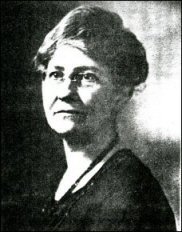|
 |
|
 |
Wednesday, April 6, 1949
Minutes for March, 1820: "Voted for each wolf, $10, catamount, 15 dollars, one cent for every mouse killed, six cents for every squirrel; that all thistles in road districts be cut."
Minutes for 1821: "Voted to pay $5 for wolf, $15 for every catamount, for bear $5, fox $2, that salary of town clerk be $15."
By 1847, the school moneys amounted to $454.38, of which that raised by tax was $387.02, that received from the state, $151.46. Even at that, the amount was a mere drop in the bucket compared to present day school appropriations. By 1859, school moneys received from the county treasurer were $1,081.21. So it can be seen how through the years as the town became settled and the population increased, the interest in education did not wane. Rather it increased, and as money became less scarce, more and more was appropriated for schools.
We may assume that the same condition prevailed in the town of Parishville. A schoolhouse succeeded the school sessions held in a barn. More and more districts were formed as the population increased. Eventually eight or ten could be found before centralization. They, however, neither were good looking nor well equipped for a long time. But the children were not critical. Their homes and manner of living were plain, meager and devoid of beauty. The finer aspects of life had to be sacrificed to the purpose of carving a commonwealth from the wilderness.
For many years children were not obliged to attend school. Many of them, therefore, attended only as they felt like it. Older boys only went to school in the winter, and then partly as a means of amusing themselves. Corporeal punishment was not only necessary, but often self-protection from gangs of mischief-makers. Examinations and graduations were unknown. Each year the classes begun their studies from the beginning of their simple text-books and went to the end of them, repeating the process the next year. They certainly mastered the few subjects they studied.
(To be concluded)
|